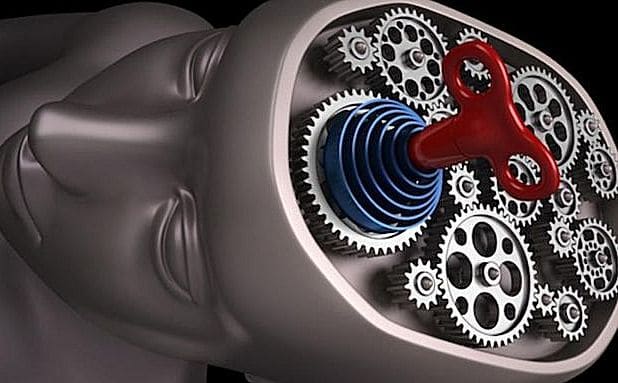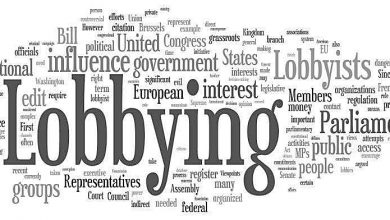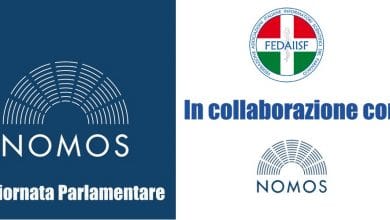
If vaccines scare you, you've fallen into a logical trap
How are prejudices and distortions unmasked? There is a solution
 If you want to understand the debate on the awarding of the Nobel Prize for medicine and that on the dramatic drop in vaccinations in Italy, two books that explain the reasoning traps typical of the knowledge society in which we live may be useful.
If you want to understand the debate on the awarding of the Nobel Prize for medicine and that on the dramatic drop in vaccinations in Italy, two books that explain the reasoning traps typical of the knowledge society in which we live may be useful.
On 5 October, a few minutes after the awarding of the prize for the discovery of two anti-parasitic drug treatments, avermectin (Satoshi Omura and William C. Campbell) and artemisinin (Tu Youyou), the first comments by alarmed scientists already appeared on the Nobel Foundation website because some media had erroneously interpreted the prize as recognition of "natural" medicines as opposed to artificial (and hypothetically dangerous) medicines produced by chemistry. This is an erroneous reasoning, which resurfaces cyclically, as revealed by the history of the discovery of antibiotics, vaccines or quinine - a kind of sister drug of the antimalarial artemisinin. Quinine was also extracted from a South American plant (the cinchona) and brought to Italy in the seventeenth century. But, in addition to being quite toxic, quinine developed resistance in the malarial parasite and in 1934 Bayer synthesized a more effective molecule, chloroquine, which after twenty years developed resistance, prompting the WHO to combine it with the reintroduction of quinine.
The same goes for Fleming's antibiotic molds or Pasteur's rabies vaccine. They are well-known stories, yet the Nobel prize for avermectin and artemisinin has unleashed articles that contrasted "natural" treatments with chemical ones, as if the two realities were antithetical or one good and the other bad.
 This way of reasoning, which could have negative consequences on public health, does not work both because it is logically fallacious and because it hides "bias", i.e. evaluation distortions caused by prejudice. The fallacy lies in the fact that the premises are true, i.e. that some pharmacological treatments have been isolated starting from natural extracts, but the conclusions are false, i.e. that the Nobels recognize that infectious diseases can be treated with natural treatments (herbal products or organic compounds). The prejudice lies in the idea that the therapeutic treatments of the past and natural ones are safer than the artificial ones of pharmaceutical chemistry.
This way of reasoning, which could have negative consequences on public health, does not work both because it is logically fallacious and because it hides "bias", i.e. evaluation distortions caused by prejudice. The fallacy lies in the fact that the premises are true, i.e. that some pharmacological treatments have been isolated starting from natural extracts, but the conclusions are false, i.e. that the Nobels recognize that infectious diseases can be treated with natural treatments (herbal products or organic compounds). The prejudice lies in the idea that the therapeutic treatments of the past and natural ones are safer than the artificial ones of pharmaceutical chemistry.
The first theme is dealt with in the book «Good logic. Learning to think» by Paolo Legrenzi and Armando Massarenti (Cortina), which offers a series of tools to refine critical reasoning and avoid classic logical errors. The thought traps analyzed were designed for citizens of advanced societies. How reasoning is constructed, even graphically, what conclusions to draw from certain premises and how to keep stereotypes under control are some of the tools addressed in the book in relation to biotechnology or global warming.
Alongside logical fallacies, the other major issue of social utility is that of cultural prejudices and cognitive distortions. An authority is Gerd Gigerenzer, a German cognitive scientist who works on the concept of «bias» and risk, author of «Learning to risk. How to make decisions  right» (Raffaello Cortina). Here too many everyday examples are offered that see our judgment falter, such as financial investments, matters of the heart and some medical decisions and, as in the previous book, the final chapter is dedicated to citizenship and school.
right» (Raffaello Cortina). Here too many everyday examples are offered that see our judgment falter, such as financial investments, matters of the heart and some medical decisions and, as in the previous book, the final chapter is dedicated to citizenship and school.
Take the case of vaccinations which we know are dangerously declining. All studies say that they are the drugs with the most favorable risk-benefit ratio on the market. Conversely, aspirin, like drugs in its category (NSAIDs), such as anti-inflammatories, analgesics and antipyretics, causes serious side effects if used improperly, which in the US alone amount to 76,000 serious hospitalizations a year. Also, while the vaccine saves your life from an often fatal disease, aspirin relieves minor ailments.
However, the web is full of nonsense against vaccines, but nobody cares about the real risks. One wonders if those who cannot manipulate the concept of risk-benefit know or can manipulate that of participatory democracy. John Adams, the second US president, affirmed an ever-current principle: "Freedom cannot be preserved unless there is general knowledge among the people." Knowledge yes, we would say today, but that it is correct and free from prejudices.





